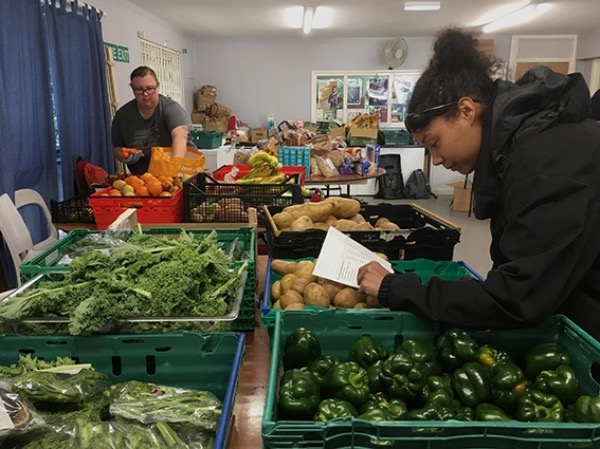Cooperation Town is a movement of community food co-ops, self organising on streets and estates across the UK. There are currently 21 co-ops in the network, and they are owned and run by their members, who democratically decide how to organise the project.
There are different types of food co-ops, some of them are shops, some are growers co-ops and some are consumer clubs… Cooperation town refers to food co-ops as small buying groups, which provide their members with affordable food (and other household products) bought in bulk and re-distributed at a very low price. This is also the most affordable — and sociable — way to get food.
Their vision is for a community-led food co-op on every street in every town…
Unlike a food bank, where recipients are means tested and have no say in how the service is run, Cooperation Town co-ops are owned by their members, who decide together what to buy and how to run the co-op. They are not-for-profit groups, set up to meet members’ needs and are controlled by the people who join them. They are based on solidarity, not charity.
The Cooperation Town model is based on a combination of free supplies and food bought cheaply in bulk. Members pay a small amount every week and contribute up to one hour a week to run the co-op. Normally the amount is around £5 a week, which saves at least a 1/3 on usual food shopping, and members get a huge range of items- decided by the membership. Some people, such as those living alone find they have too much food, and so divide the food box with neibours.
Cooperation Town co-ops only serve their members, they are not shops open to the public. In order to benefit from co-op food, people have to join as members.
For free food Cooperation Town has a relationship with a few major free food distributors, such as the Felix Project (in London) and FareShare (across the UK). These organisations get huge quantities of surplus food from supermarkets, recipe box companies and producers and distribute them to charities, food banks and Cooperation Town co-ops. They also have an agreement with Co-op supermarkets (the high street stores) about providing free food to Cooperation Town co-ops.
“Through joining the food co-op I connected with neighbours I never knew. Organising together has been a godsend — we get lots of food for free, buy the rest in bulk, split the cost and collectively get more for our money. There is a place for everyone, no matter what your skills are and you learn some new ones along the way. Everyone takes on a small role, so no one person is left holding the beans!”
